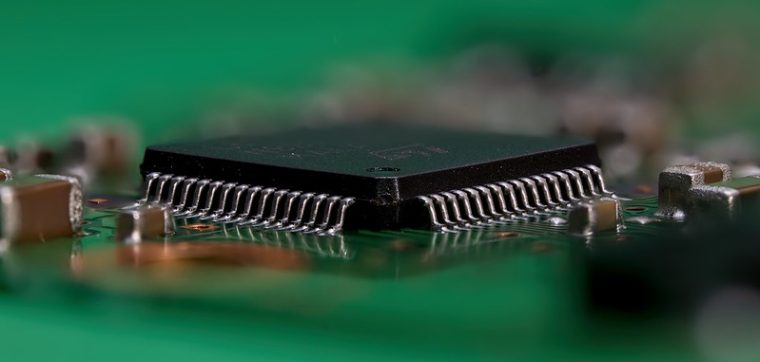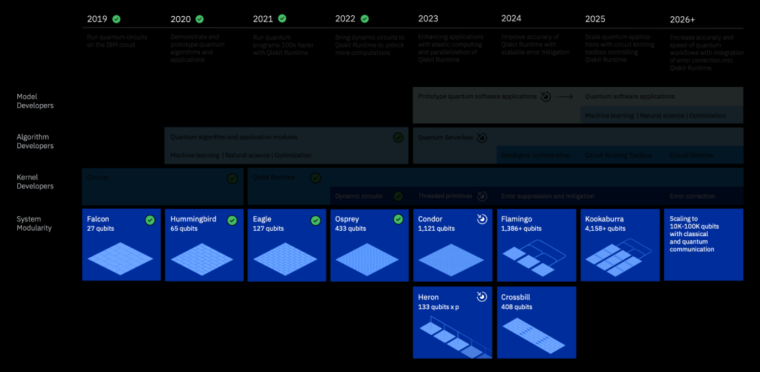
Quantum computers pose a grave threat to people’s privacy, experts warn. The revolutionary technology has the potential to crack even the most complex encryption methods currently protecting people’s sensitive data and information within seconds.
While fully functioning quantum computers are still many years away, researchers have already demonstrated how quantum computers could render most modern encryption standards useless.
Quantum computers, which store and process information differently than regular computers, leverage the strange properties of quantum mechanics. This allows them to perform certain types of calculations exponentially faster than today’s most powerful conventional computers.
Large Quantum Computers Can Break Advanced Encryption by Using Peter Shor’s Algorithm
In the 1990s, researchers discovered a quantum algorithm developed by mathematician Peter Shor that could efficiently break the encryption used to secure the internet and most data today, such as RSA encryption. When fully functional, quantum computers with millions of quantum bits or qubits will be able to run Shor’s algorithm and crack RSA encryption in seconds.
In 2001, IBM and Stanford University presented to the world the first quantum computer made up of a 7-qubit processor. The computer was able to run a small experiment by using Shor’s algorithm.
Fast forward to 2019, Alphabet (GOOG), the parent company of Google, claimed that it achieved quantum supremacy, meaning that the hardware was able to perform calculations that exceeded the capacity of classic equipment.
In that same year, IBM made its quantum computing infrastructure accessible on the IBM Cloud. The company plans to keep expanding its quantum program until it can deliver from 10K to 100K qubits of power by 2026.
While large-scale quantum computers are still out of reach, researchers have recently published papers demonstrating strides in the field. A recent controversial paper by Chinese scientists claimed that a quantum computer with just 372 qubits could break encryption keys with over 600 decimal digits using a different optimization algorithm rather than Shor’s.
While experts doubt the quantum computer would actually be faster in practice, the paper shows that quantum computers pose security risks even when they are fairly small.
In response, security researchers are working on developing ‘post-quantum’ or ‘quantum-safe’ encryption methods that are believed to be resilient against quantum computer attacks.
However, experts worry that quantum algorithms discovered in the future could render these new security methods useless as well. Once quantum computers achieve the scale needed to break current encryption, it could cause a crisis of confidence in global digital infrastructure and internet security, according to some experts.
Governments Need to Prepare for the Risks That Powerful Quantum Computers Bring to the Table
As scientists continue to make advancements in quantum computing, scaling up qubits and reducing errors, many are worried about what the future holds regarding privacy. While the 10-qubit quantum computers available now are unable to crack any meaningful encryption, experts predict that quantum computers with 50 to 100 qubits will likely be able to break certain encryption methods used in specific applications.
Quantum computers with millions of qubits needed to threaten global internet security are likely still decades away. But over time, quantum computers will continue to become more capable and pose more significant threats to the privacy of individuals and organizations around the world as they store and transmit increasingly sensitive data and information digitally.
Also read: Facebook, Twitter, Snapchat: 3 Data Privacy Tips
While quantum computers promise to usher in a new era of computational innovation, solving complex problems in fields like chemistry, drug discovery, and artificial intelligence, they also threaten to open a Pandora’s box of privacy and security concerns when they become powerful enough.
As such, experts warn that it is crucial for governments, organizations, and the public to prepare now for how their data will remain private and secure as quantum computers continue to advance and eventually reach scales that make most existing encryption obsolete. The next decade will be critical in developing solutions to ensure the privacy of digital data survives the looming threat posed by quantum computers.
